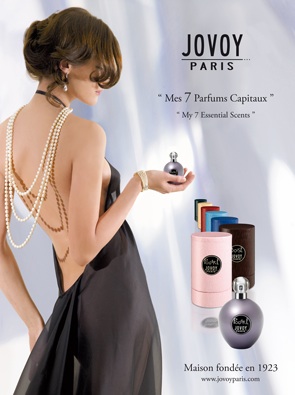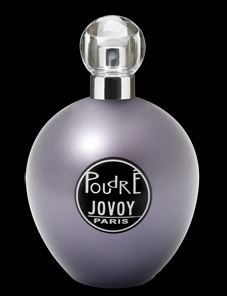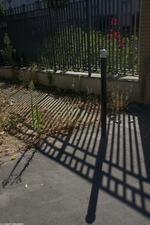Chypre, Oriental, Poudré by Jovoy & Chypre by Coty: On Perfume Names {Perfume Shorts (Reviews)} {Scented Thoughts} {New Perfumes}


An interesting historic example is Chypre by Coty created in 1917, which rather than to clarify the situation, rather leads to further questioning. When one smells Chypre by Coty today one is faced with a similar conundrum, which is that it smells rather generic to a contemporary nose, as if it were a well-known perfume base recognizable and found in many products put forth since the 1910s going from perfumes of the chypre family to simply, soaps. The airspun powder by Coty, which is still being sold in drugstores as familiar as Walgreens and CVS and in its original Art Deco packaging is also redolent of the scent of this original Chypre hence contributing to a further sense of the perhaps all-too-familiar, diffuse, and universal. And the name itself does not help our imagination as it has become somewhat of an abstraction denoting a family of perfumes even more than it did at the time of its launch. Who ever thinks of the Mediterranean and the island of Cyprus when smelling a chypre?
Some perfumes seem to contain motifs in them and instantly transport us to an universe suggested by the impressions of the perfumer managing, somehow, to open the gates of imagination for us. Others seem more like fragrances destined to smell good but on which it appears tricky to collage images. They are more like harmonious blends, scented media, than theaters for our representations. But perhaps it is just this individual’s very subjective experience.
Attempts have been made to “untitle” perfumes by those who want to go back to the purity of olfactory perception and who think that only the juice matters. Perhaps in a way, labeling a perfume with a very general name purports to do the same or perhaps it ends up being completely different an enterprise as the mind is invited to revolve around a generality, including the perfumer’s mind, not just the wearer’s. Chanel No. 5 is a number initially but through the course of its career beccomes a myth to which many stories are appended. The Jovoys, although resuscitating an old perfume house, are new.
Chypre by Jovoy was composed by perfumer Amandine Marie. It is a classic floral chypre that is akin to chypres like Cabaret by Grès, Knowing by Estée Lauder, or the Sisley chypres for example.The rose, patchouli, and ambergris are most prominent. It evokes the lightly fumé scent emanating from the outfit of a well-tailored woman who smokes cigarettes and likes to spend time in Parisian cafes. She just entered one to escape the rain and might even be carrying a poodle in her lap (animalic notes and a slightly wet impression). Top notes are rose, peony; heart notes are jasmine, lily of the valley, honey; base notes are amber, vetiver, patchouli.
Oriental is also a creation by Amandine Marie and offers fruity, milky and woody facets with a light chypre overtone later on in the drydown. It makes one think a bit of caramel apples kept in a cedar chest and offers a creamy and woody texture. Top notes are pink berries, bergamot; heat notes are peach and rose; base notes are vanilla, cedar, amber.
Poudré was composed by Jérôme Epinette. It is powdery like baby powder with a noticeable metallic tang to it and nuances of nail polish. It has a certain sharpness to it also that people who like perfumes such as Blue Grass by Elizabeth Arden might enjoy. It conjures up the vision of a retro feminine vanity dresser of the 1950s-1960s next to a baby crib. Jérôme Epinette also created Ilaya by Isabel Derroisné.
All of the Jovoy perfumes smell good and give the impression of being of medium complexity. It feels a bit like they could be further added to if one wished to do so. But they blend particularly well with one's skin in the drydowns, in the vein of Absolument Absinthe by Le Parfum d'Interdits, which was designed to offer this functionality.
Again we go back to our initial question, which is to know to which extent the generic aspect of the names and of the creative program influenced the conceptions of the fragrances for the perfumers and our perception of them. From the point of view of the brief, it is mission accomplished, each perfume reproduces the characteristics of its family but seems to perhaps need more individuality in the next step.
The ensemble aspect of the enterprise, issuing seven fragrances at a time, must have contributed to a homogenizing and systematic vision for the collection. Maybe perfumes need more personal stories and independent developments, accidents of history and incompatible neuroses. Yet they smell very good, especially in the drydowns, and the packaging is lovely, so why be picky? We should maybe just relax and enjoy.









I always enjoy your posts, Marie-Helene. I have just one correction to submit. The Coty Airspun powder actually uses the L'Origan fragrance, not Chypre. Airspun was also produced with the L'Aimant and Emeraude fragrances but those have since been discontinued. I recently acquired vintage samples of several Coty perfumes and can confirm from personal experimentation.
Hi Heather,
I would love to check this out myself. My memory of this powder goes back to my grand-mother who used it and my mother who continued to buy it for memories' sake. I just checked quickly and this link featuring a 1938 ad says that it was produced with the scent of Chypre as well. When I smelled it, it made me think of the powder:
http://www.perfumeprojects.com/museum/bottles/Coty_0066.php
To my nose Chypre smells more "generic" and universally quoted in many toiletries products than L'Origan which inspired L'Heure Bleue. But if it's been discontinued for a while according to your info, then I would need to scrape the contemporary part of the description.
I'm interested in the erotics of perfume names and wonder if you have any thoughts on the matter. I'm writing a book on semiotics and consumer culture and now am dealing with brands that people use to create their identities.
Yes, I might have some thoughts on the topic, but would need to formalize them. What kind of contribution are you expecting from me?